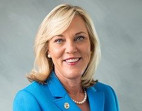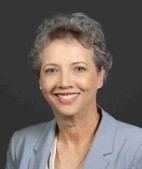 The Los Angeles County Department of Public Health has released its first-ever report on medical debt in Los Angeles County detailing the widespread burden of medical debt, affecting more than one in 10 residents in the most populated county in the nation.
The Los Angeles County Department of Public Health has released its first-ever report on medical debt in Los Angeles County detailing the widespread burden of medical debt, affecting more than one in 10 residents in the most populated county in the nation.
The report, Medical Debt in LA County: Baseline Report and Action Plan, found that approximately 810,000 residents are impacted by medical debt, amounting to over $2.6 billion as of 2021.
The prevalence of medical debt, which impacts 10% of adult residents in LA County, is comparable to other health burdens with significant financial and health consequences. For example, nearly 12% of County adults are impacted by diabetes, 8% by asthma and 6% by smoking.
Insurance Not a Safeguard Against Medical Debt
Despite insurance coverage expansions with the Affordable Care Act and the COVID-19 emergency, the prevalence of medical debt remained unchanged from 2017-2021. While the uninsured bore the greatest burden, with 26.3% facing medical debt, the debt-burdened population also included 8.3% of those with private insurance and 9.4% of those with Medi-Cal, the state’s Medicaid healthcare program. Even those with some form of insurance whether private or public were twice as likely to have debt compared to those with Medicare, with only 5.7% of respondents reporting debt burden.
Causes of debt for insured patients include high out-of-pocket expenses, including deductibles, copays, and procedure or provider exclusions. Exorbitant hospital costs contributed to medical debt: adults with at least one in-patient stay in the past year were over two and a half times more likely to be burdened with medical debt than those who had no hospital stays, and those with at least one emergency room (ER) visit in the past year were almost twice as likely to be burdened as those without ER visits.
Who is Impacted?
As seen with COVID-19, medical debt disproportionately affects vulnerable populations. Our analysis found that:
-Adults in households with children were 37% more likely to be burdened by medical debt than adults in households without children.
-Lower-income residents were disproportionally burdened by medical debt and were almost twice as likely to have medical debt as those with higher incomes.
-Based on the analysis, the medical debt burden in communities by race/ethnicity was:
-Latino: 12.4%
-Black: 11%
-American Indians/Alaska Natives, and mixed race or other races/ethnicities: 12.7%
-Asian: 5.8%
-White: 7.9%
These findings raise concerns related to poverty, racism, and health equity.
Adults with COVID-19 were 34% more likely to be burdened with medical debt. Similarly, people who reported being in poor health were more than twice as likely to be burdened as those reporting excellent or very good health.
Impacts on Life and Health
The inability to cover healthcare costs leads to loans from friends and family, high-interest credit card debt fueled in part by a new industry of medical credit cards, and other forms of borrowing. Fifty percent of adults with medical debt burden reported taking on credit card debt to pay for their medical bills, and 46% reported being unable to pay for basic necessities such as food and shelter, due to their medical bills. People with medical debt burden, regardless of gender, age, or race/ethnicity, are two to three times more likely to experience food insecurity and housing instability. About half of those who took on credit card debt or were unable to pay for necessities owed less than $2,000, suggesting that even relatively small amounts of debt caused serious hardships for struggling households.
Medical debt also impacted the ability of patients to seek care or treatment. Those with medical debt were about three times more likely to skip or delay needed healthcare, and three and a half times more likely to delay or not pick up prescriptions compared to those who were not burdened with medical debt. The report warns of a looming crisis as the public health emergency protections end with over 300,000 LA County residents at risk of losing Medi-Cal.
“Medical debt has been the principal source of personal debt and number one cause of bankruptcy in the United States, and undermines financial security, a key social determinant of health. said Barbara Ferrer, Ph.D., M.P.H., M.Ed., Director of the Los Angeles County Department of Public Health. “People who are burdened by medical debt tend to be the most vulnerable among us – they are overwhelmingly people who are sick and trying to get well but unable to afford it. Guided by this data and our coalition partners, we have developed comprehensive recommendations to advance this issue and track progress to ensure our communities are physically and financially healthy.”
A Novel, Community-Driven Approach
The Department of Public Health is building upon the lessons of the pandemic, where we saw persistent and stark inequities in terms of healthcare access.
The study of medical debt was launched as part of a community-driven initiative that included meetings held with a diverse coalition of stakeholders including consumers with medical debt, community organizations, and health system leaders including key hospitals and health plans, which resulted in several proposals to prevent and mitigate medical debt as well as improving financial assistance programs.
“We knew a data-informed, community-driven approach would lead the way forward. Early conversations with community members informed our recommendations and will be crucial to our continued work as we look to address the causes of medical debt,” said Dr. Ferrer.
Data used
This analysis uses data from the 2017-2021 California Health Interview Survey, the largest state-level survey conducted by the University of California, Los Angeles. Most of the analyses were based on 2019-2021 survey responses from a representative sample of 13,423 adults (18+) in LA County who were asked if they have had problems paying medical bills for themselves or their household members in the past 12 months.
Looking ahead
The County’s plan for preventing and relieving medical debt includes:
-Expanding and improving data gathering on debt collection and financial assistance activities.
-Fully implementing new fair billing laws, such as California State Assembly Bill 1020, which seek to increase charity care, limit the sale of medical debt to debt buyers and improve the dissemination of financial assistance program information.
-Improving financial assistance programs by working with partners to simplify and clarify applications, recommending funding to hire navigators to assist, and qualifying patients early in the billing process.
-Identifying strategies for medical debt relief that include retiring medical debt for pennies on the dollar similar to programs in Cook County (IL), New Orleans, LA, and Pittsburgh, PA.
-Addressing medical debt as a systemic health issue through a newly established coalition, which will identify and implement policies and practices to decrease and prevent future medical debt.
To view the full report online, visit the website.
Like this:
Like Loading...
Related




 Tweet This
Tweet This Facebook
Facebook Digg This
Digg This Bookmark
Bookmark Stumble
Stumble RSS
RSS The Los Angeles County Department of Public Health has released its first-ever report on medical debt in Los Angeles County detailing the widespread burden of medical debt, affecting more than one in 10 residents in the most populated county in the nation.
The Los Angeles County Department of Public Health has released its first-ever report on medical debt in Los Angeles County detailing the widespread burden of medical debt, affecting more than one in 10 residents in the most populated county in the nation.




























REAL NAMES ONLY: All posters must use their real individual or business name. This applies equally to Twitter account holders who use a nickname.
0 Comments
You can be the first one to leave a comment.